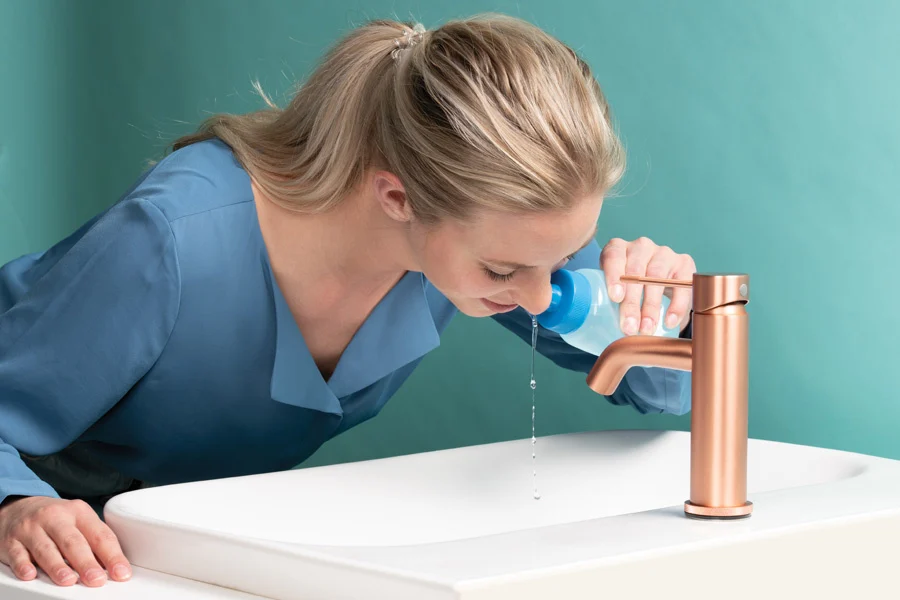Contents
- Overview
- Causes
- Diagnosis
- Treatment
- Complications
- Prevention
Allergic rhinitis is inflammation of the inside of the nose caused by an allergen. Allergens include pollen, dust, mould or flakes of skin from certain animals.
Allergic rhinitis affects about 1 in 5 people.
Symptoms of allergic rhinitis
Allergic rhinitis causes cold-like symptoms. These include sneezing, itchiness and a blocked or runny nose.
Symptoms usually start soon after you’re exposed to an allergen.
Some people only get allergic rhinitis for a few months at a time. This is because they’re sensitive to seasonal allergens, such as tree or grass pollen. Other people get allergic rhinitis all year round.
Most people with allergic rhinitis have mild symptoms.
But for some people, symptoms can be severe and persistent. They can cause sleep problems and interfere with everyday life.
The symptoms of allergic rhinitis can improve with time. But this can take many years. It’s unlikely that the condition will disappear completely.
When to see your GP
See your GP if the symptoms of allergic rhinitis are:
- disrupting your sleep
- preventing you from doing everyday activities
- affecting your performance at work or school
Your GP can diagnose allergic rhinitis based on your symptoms and any triggers you notice.
If the cause of your condition is uncertain, they may refer you for allergy testing.
Causes of allergic rhinitis
The immune system is your body’s natural defence against illness and infection. If you have allergic rhinitis, your immune system reacts to an allergen as if it’s harmful.
Your cells release chemicals that cause the mucous membrane (the inside layer of your nose) to become swollen. Your body produces too much mucus.
Common allergens that cause allergic rhinitis include:
- pollen (this type of allergic rhinitis is hay fever)
- mould spores
- house dust mites
- flakes of skin from some animals
- droplets of urine or saliva from some animals
Treating and preventing allergic rhinitis
It’s difficult to completely avoid potential allergens. But you can try to reduce your exposure to allergens that may trigger your allergic rhinitis. This will help improve your symptoms.
If your condition is mild, taking over-the-counter medications can help. These include non-sedating antihistamines. Rinsing your nasal passages with a salt water solution helps keep your nose free of irritants.
See your GP for advice if you have tried these steps and they have not helped.
Your GP may prescribe a stronger medication, such as a corticosteroids nasal spray.
Complications of allergic rhinitis
Allergic rhinitis can sometimes cause complications.
These include:
- nasal polyps – benign (non-cancerous) sacs of fluid that grow inside the nasal passages and sinuses
- sinusitis – an infection caused by nasal inflammation and swelling
- middle ear infections – infection of the part of the ear behind the eardrum
You can often treat these problems with medication. But you may need surgery for severe or long-term cases.
Non-allergic rhinitis
The cause of rhinitis is not always an allergic reaction.
Some cases are the result of:
- an infection, such as the common cold
- oversensitive blood vessels in the nose
- overuse of nasal decongestants
This type of rhinitis is known as non-allergic rhinitis.
Reference: HSE.
Sinus Rinse
A sinus rinse can be a highly effective way to manage symptoms of allergic rhinitis. By using a saline solution to gently flush out the nasal passages, sinus rinsing helps clear away allergens, mucus, and other irritants, which can reduce inflammation and ease congestion. This simple practice can also keep the nasal passages hydrated, relieving dryness and promoting sinus health. Regular use of a sinus rinse can provide natural, immediate relief for allergy sufferers, helping reduce dependency on medications for long-term symptom control.

